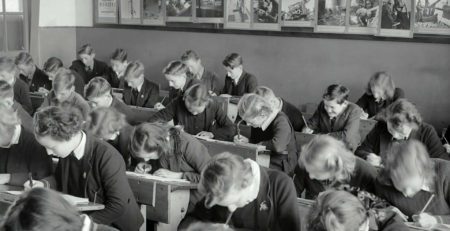FPA welcomes recommendation to extend HPV vaccination to boys
FPA is delighted that the Joint Committee on Vaccinations and Immunisations (JCVI), the government’s advisory body on vaccinations, has recommended extending the human papillomavirus (HPV) vaccination programme to boys.
HPV is spread through sexual contact. High-risk types of HPV cause the majority of cases of cervical cancer in women and have been linked to a number of other cancers in both men and women. The vaccine is highly effective at protecting against high-risk HPV as well as the types of HPV that cause genital warts. Despite this, the HPV vaccination programme introduced in 2008 has only been offered to girls, not boys.
Natika H Halil, Executive Director of FPA said:
“We’re delighted that the JCVI recommended that boys and girls should be equally protected from high-risk HPV.
“HPV is linked to cancers of the penis and anus, as well as some cancers of the head and neck – which are currently rising at an alarming rate among men – and it’s absolutely right that boys should be offered a safe and effective vaccine to protect their health.
“The JCVI began their assessment into whether boys should be vaccinated in 2013. There must be no more delays. We urge the government to publish a plan for rollout at the earliest opportunity and to ensure the vaccination programme is in place by September 2019.”
Notes to Editor
- The routine HPV vaccination programme for 12 to 13-year-old girls began in 2008 and the JCVI began their assessment of whether boys should be vaccinated in 2013. Decisions were promised for 2015 and then 2017.
- Statistics from Public Health England show that since the introduction of the vaccination, infections of HPV types 16/18, which causes the majority of cases of cervical cancer, have reduced by 86% in 16-21-year-old women.
- Statistics from Public Health England show that around 85% of teenage girls are vaccinated against HPV. The JCVI had previously argued that this provided adequate “herd protection” for boys. While there is no doubt that vaccinating females offers some protection to heterosexual men, a heterosexual man still has a one in seven chance of meeting an unvaccinated woman in a new sexual encounter. The vaccination of teenage girls offers little benefit to MSM (men who have sex with men). In April 2018, a nationwide programme to vaccinate MSM against HPV in sexual health and HIV services was rolled out. While this was welcome, the HPV vaccine is most effective before exposure to the virus. An analysis of the Genitourinary Medicine Clinic Activity Dataset found that the average (median) age of first attendance at a sexual health clinic was 32 years old, at which point many will already have been exposed to the virus.
- As well as causing cervical and vaginal cancers, HPV is linked to around half of penile cancer and the majority of anal, throat, head and neck cancers in both sexes.

